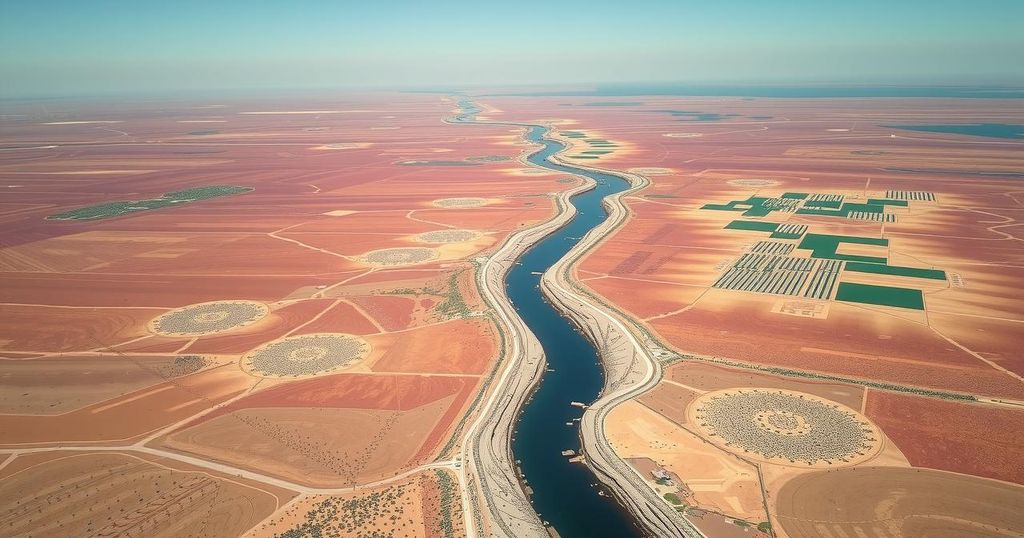Iranian residents of Sistan and Baluchestan are facing severe drought due to ongoing water diversion by the Taliban from the Hirmand River. Despite previous assurances, recent satellite images show continued diversion of water to Godzareh. Residents are calling on the Iranian government to take action to secure their entitled water rights under an established treaty.
Residents of Iran’s Sistan and Baluchestan province have faced prolonged drought due to inadequate water supplies and Afghanistan’s non-compliance with agreements. They are urging President Masoud Pezeshkian and the Ministry of Foreign Affairs to take significant measures to ensure Iran receives its rightful share of water from the Hirmand River.
Recent satellite imagery has revealed that water continues to be diverted by the Taliban from the Kamal Khan Dam to the salt flats of Godzareh, contradicting prior assurances from Taliban officials. This diversion persists despite Taliban claims that drought conditions were preventing water release.
Initial hopes arose following heavy rainfall and floodwaters entering Iran, suggesting the Taliban might fulfill its commitments regarding water distribution. However, the Taliban continues to cite drought and technical issues as reasons for the insufficient supply of Iran’s legally entitled water from the Hirmand River.
Iran maintains that Afghanistan is obligated to respect the 1973 Hirmand River water treaty, which mandates the provision of a designated water share to Iran. The ongoing situation underscores the need for diplomatic action to uphold this international agreement and address the water scarcity issues faced by Iranian residents.
In summary, the situation concerning the Hirmand River presents a critical challenge for Iran, as the Taliban’s continued diversion of water raises serious concerns. Residents are pressing for governmental intervention to secure their rights under the 1973 treaty. As circumstances evolve with changes in rainfall and water availability, diplomatic efforts will be essential to resolve these challenges effectively.
Original Source: ifpnews.com






